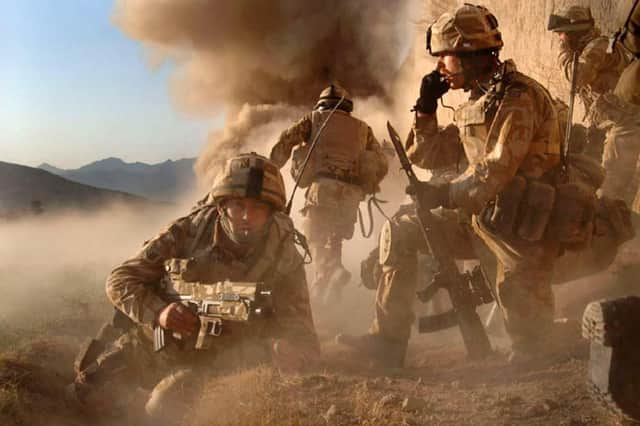Suicidal veterans desperate for help turn to SSAFA in their thousands as charity warns of an increase in demand on helpline service


Sir Andrew Gregory, chief executive of SSAFA, said the national organisation had seen a major spike in the number troops with serious mental health issues contacting them.
The charity chief claimed in the past year, SSAFA’s ‘Forcesline’ support service had seen a rise of more than 11 per cent in the number of calls it had received.
Advertisement
Hide AdAdvertisement
Hide AdLast year, 14,339 incoming calls were made to the helpline compared to 12,888 in 2017.
The revelation comes amid an investigation by The News and its parent company JPIMedia into the number veterans taking their lives in Britain.
This paper has united with campaigners, politicians and veterans to call on the government to provide better support for traumatised service personnel battling severe mental health problems following their time in the forces.
Speaking of the increase in the number of calls to SSAFA, Sir Andrew said: ‘SSAFA is acutely aware of the increase in mental health issues within the armed forces and it is absolutely correct that a spotlight is being shone on this issue.
Advertisement
Hide AdAdvertisement
Hide Ad'Last year, Forcesline, SSAFA’s helpline, saw an 11.26 per cent increase in calls from individuals facing negative and sometimes suicidal thoughts.
'In response to these devastating statistics, SSAFA launched a dedicated support group for families affected by suicide.
'Although SSAFA has been running bereavement support groups for several years, we recognise that a loved one taking their own life requires a specific type of bereavement support – different from that following a death during conflict or after an accident.
'However, it remains incredibly important that more is done to urge military personnel to come forward and ask for help before they reach more desperate circumstances.’
Advertisement
Hide AdAdvertisement
Hide AdAside from mental health problems like post-traumatic stress disorder (PTSD) and depression, SSAFA warned veterans were also coming to them for help after falling into debt.
The charity warned changes in and reassessments of those eligible for personal independence payments (PIP), many veterans and their families who were already struggling to live on low incomes are now being cut to the bone.
Research from SSAFA found 87 per cent of veterans helped by the charity had experienced financial problems since leaving the armed forces with the average net household income under £17,000 per year.
As a result, 79 per cent of veterans surveyed said they struggled to make ends meet at the end of the month.
Advertisement
Hide AdAdvertisement
Hide AdLast year, close to 100 veterans are said to have taken their own lives.
However, despite the numbers, British coroners still don’t record the number of veterans suicides, unlike international allies like America, Australia and Canada which do.
Charities say this data could be invaluable to helping identify which parts of the UK need more support.
Today, The News revealed that, despite the pleas from campaigners, the Ministry of Justice is still refusing to order coroners to record the data, claiming it wasn’t ‘feasible’.
Advertisement
Hide AdAdvertisement
Hide AdThe comments outraged veterans, who accused Britain of continuing to turn its back on service personnel in need.
For help, contact: Veteran’s Outreach Support on 023 9273 1767, Samaritans on 116 123, Combat Stress on 0800 138 1619 and Veterans Gateway on 0808 802 1212